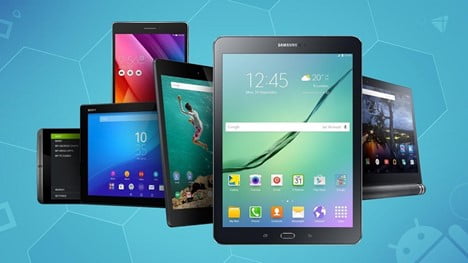In the dynamic landscape of Industry 4.0, the convergence of technology and manufacturing has given rise to the concept of smart factories. Central to this transformation are tablets and personal devices, which have become indispensable tools in the hands of industrial professionals. This article explores the significant impact of tablets on the industrial sector, shedding light on the ways in which these devices are revolutionizing smart factories.
The Evolution of Smart Factories
The fourth industrial revolution, commonly referred to as Industry 4.0, heralds a new era where digital technologies, automation, and connectivity converge to redefine manufacturing processes. At the heart of this revolution are smart factories, which leverage advanced technologies to optimize production, enhance efficiency, and facilitate data-driven decision-making. Tablets and personal devices are playing a pivotal role in driving this transformation, offering a mobile and versatile interface that empowers industrial professionals on the shop floor.
Tablets as Control Centers
One of the primary contributions of tablets to smart factories lies in their role as control centers for industrial processes. Equipped with specialized applications and connectivity features, tablets allow professionals to monitor and control machinery in real-time. This level of accessibility and immediacy empowers workers to respond swiftly to changes in production variables, reducing downtime and optimizing overall efficiency. From adjusting machine settings to troubleshooting issues remotely, tablets serve as a window into the heart of smart factories.
Augmented Reality (AR) for Maintenance and Training
The integration of augmented reality (AR) applications on tablets is transforming how maintenance tasks are performed in smart factories. Technicians equipped with AR-enabled tablets can overlay digital information onto physical machinery, providing interactive guides for maintenance procedures. This not only streamlines the maintenance process but also enhances the precision and speed at which tasks are completed. Additionally, tablets are becoming essential tools for training purposes, allowing new technicians to undergo immersive and hands-on training experiences using AR simulations.
Real-time Data Analytics
In the realm of Industry 4.0, data is king, and tablets serve as conduits for real-time data analytics on the factory floor. With the ability to connect to industrial sensors and data sources, tablets enable professionals to access crucial insights into production metrics, quality control parameters, and equipment performance. This data-driven approach empowers decision-makers to identify inefficiencies, predict maintenance needs, and make informed decisions that contribute to overall operational excellence.
IoT Integration
The Internet of Things (IoT) plays a pivotal role in smart factories, connecting devices and machinery to create an interconnected ecosystem. Tablets serve as the interface through which industrial professionals can access and interpret the wealth of data generated by IoT-enabled devices. This seamless integration allows for real-time tracking of inventory, monitoring energy consumption, and optimizing supply chain logistics. By fostering connectivity across the shop floor, tablets contribute to the holistic digitization of manufacturing processes.
Collaborative Workflows
Tablets facilitate collaborative workflows by serving as communication hubs on the factory floor. Through collaborative applications and instant messaging platforms, teams can communicate efficiently, share updates, and coordinate tasks in real-time. This not only enhances teamwork but also contributes to a more agile and responsive manufacturing environment. Tablets empower workers to collaborate seamlessly, whether they are on the production line, in a remote office, or conducting field inspections.
Security and Integration
While the benefits of tablets in smart factories are evident, there are challenges and considerations that organizations must navigate. Security concerns related to the integration of tablets into industrial networks must be addressed to safeguard against cyber threats. Ensuring seamless integration with existing systems and protocols is another consideration, requiring careful planning and coordination to avoid disruptions in the manufacturing process.
Continual Innovation with Tablets and Computers
As we look to the future of smart factories, the role of computers alongside tablets stands out as a driving force in continual innovation. While tablets have been pivotal in the current wave of technological advancements, the integration of computers introduces a new dimension to the manufacturing landscape.
The computational prowess and multifaceted capabilities of computers like the Macbook Pro or Macbook Air significantly enhance data analytics, simulations, and complex modeling, providing industrial professionals with more robust tools for decision-making and problem-solving. Moreover, computers contribute to the development of sophisticated algorithms and artificial intelligence applications that optimize production processes, predictive maintenance, and resource allocation.
With real-time processing capabilities, computers further amplify the efficiency gains initiated by tablets in tasks such as monitoring, control, and analysis on the factory floor. As the industrial sector embarks on a comprehensive digital transformation, the synergy between computers and tablets becomes a cornerstone of continual innovation, promising a future where smart factories are interconnected and equipped with the computational muscle needed to meet the evolving demands of modern manufacturing.
Tablets as Catalysts for Industrial Transformation
In conclusion, the integration of tablets and personal devices marks a pivotal moment in the evolution of smart factories. These devices serve as catalysts for industrial transformation, empowering professionals with unprecedented levels of connectivity, control, and data-driven insights. As the industrial sector embraces the possibilities of Industry 4.0, tablets will remain indispensable tools, driving continual innovation and reshaping the landscape of modern manufacturing. With tablets at their core, smart factories are not just a glimpse into the future – they are the present, revolutionizing how we conceptualize and realize industrial production.


